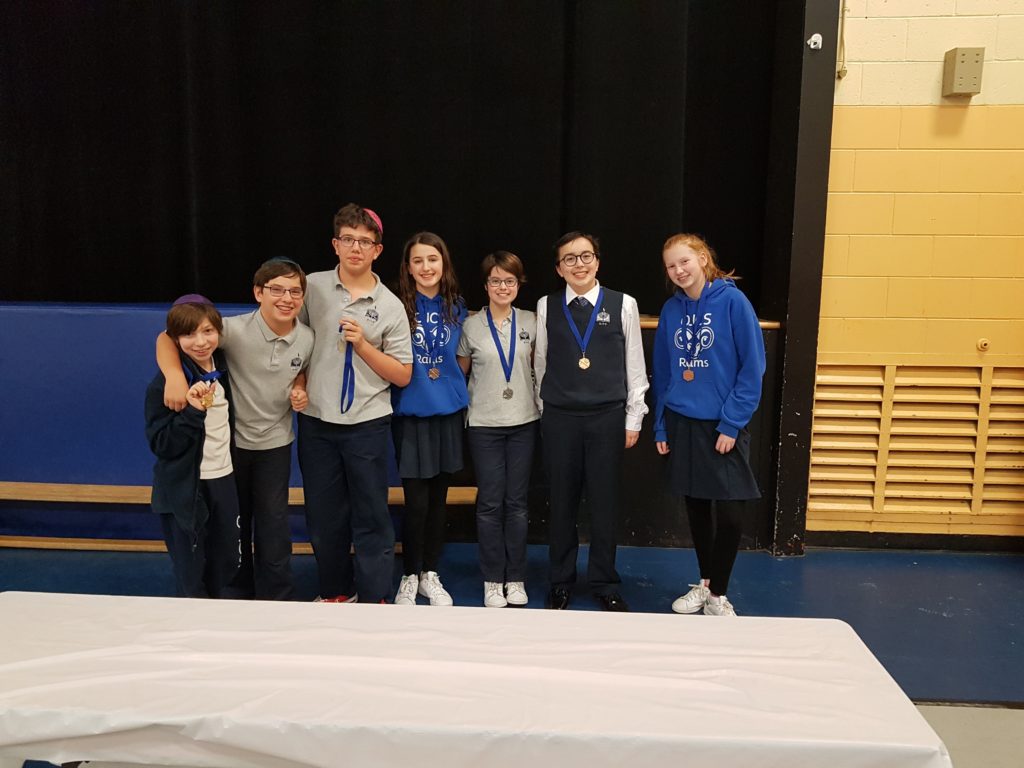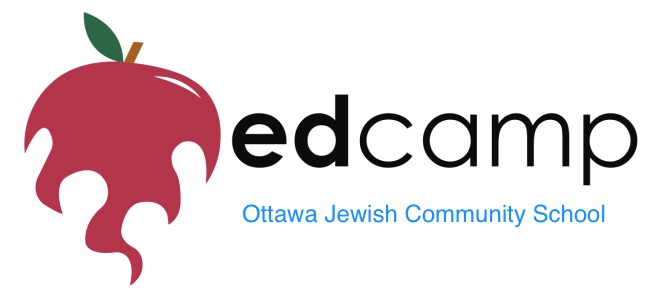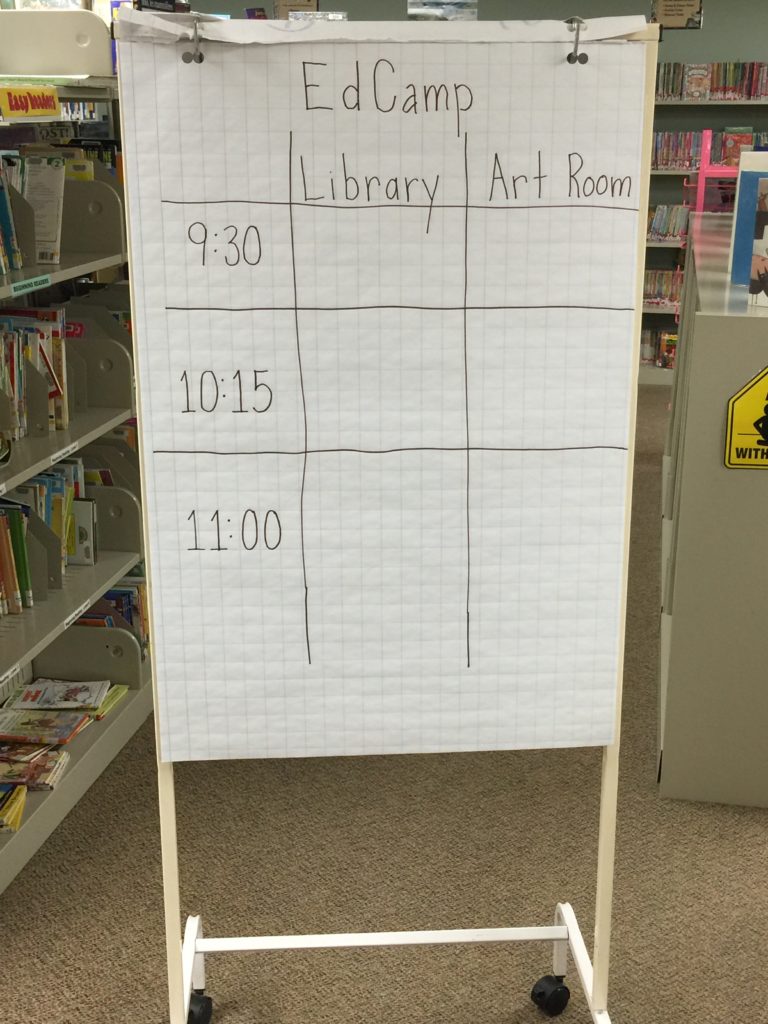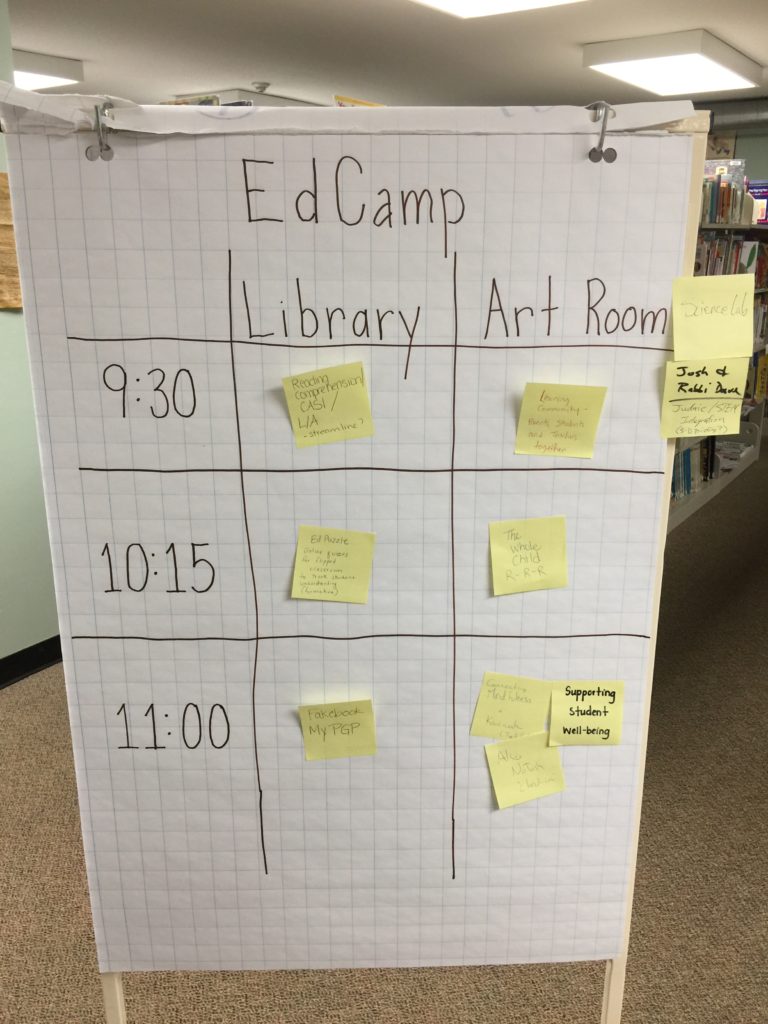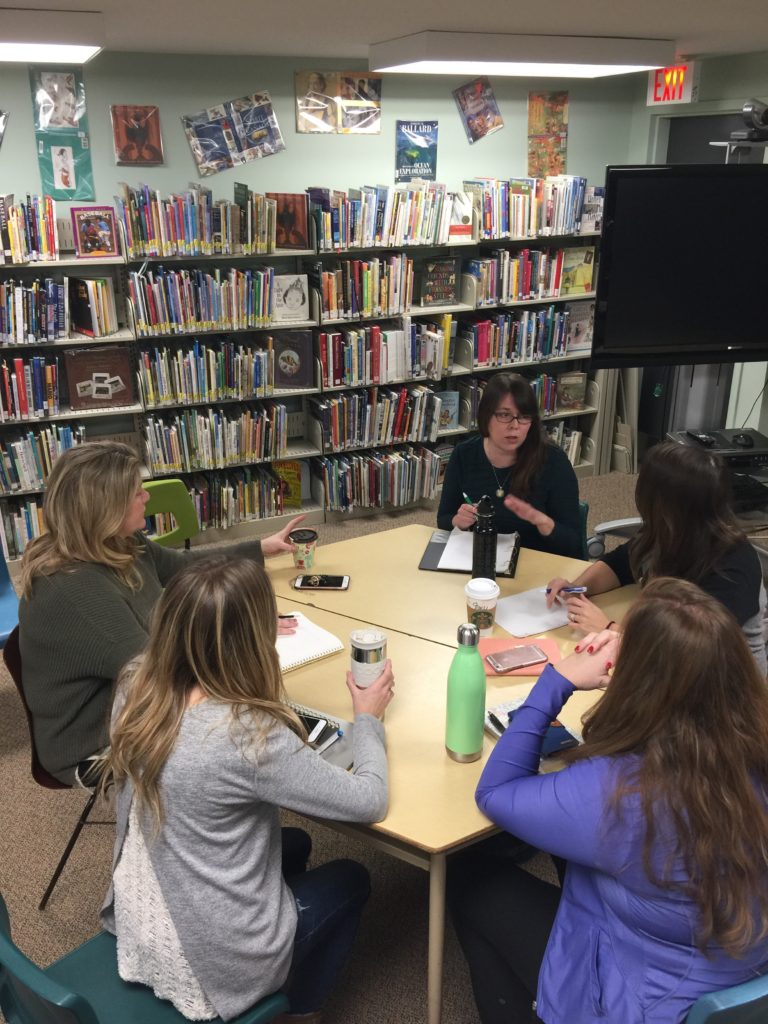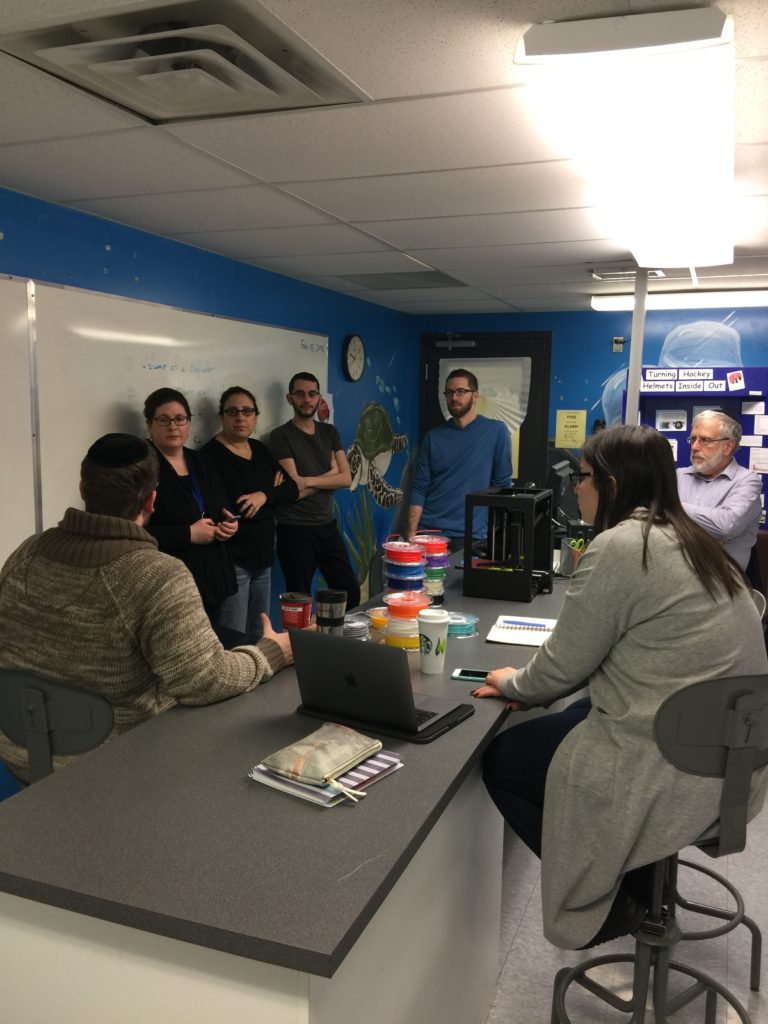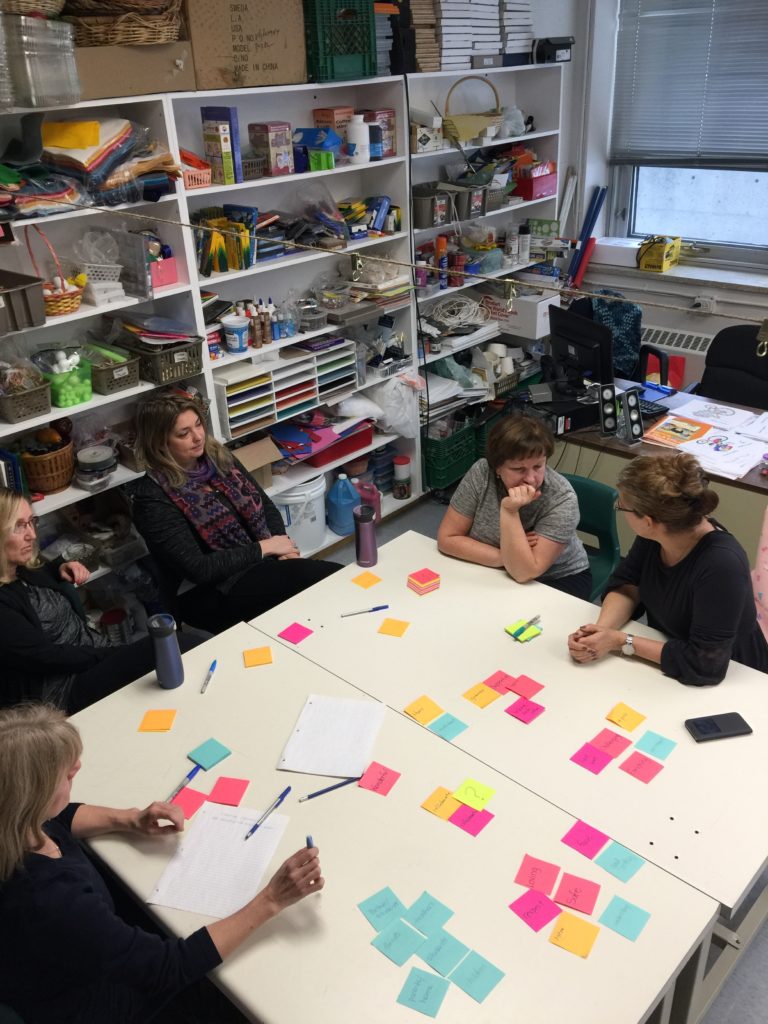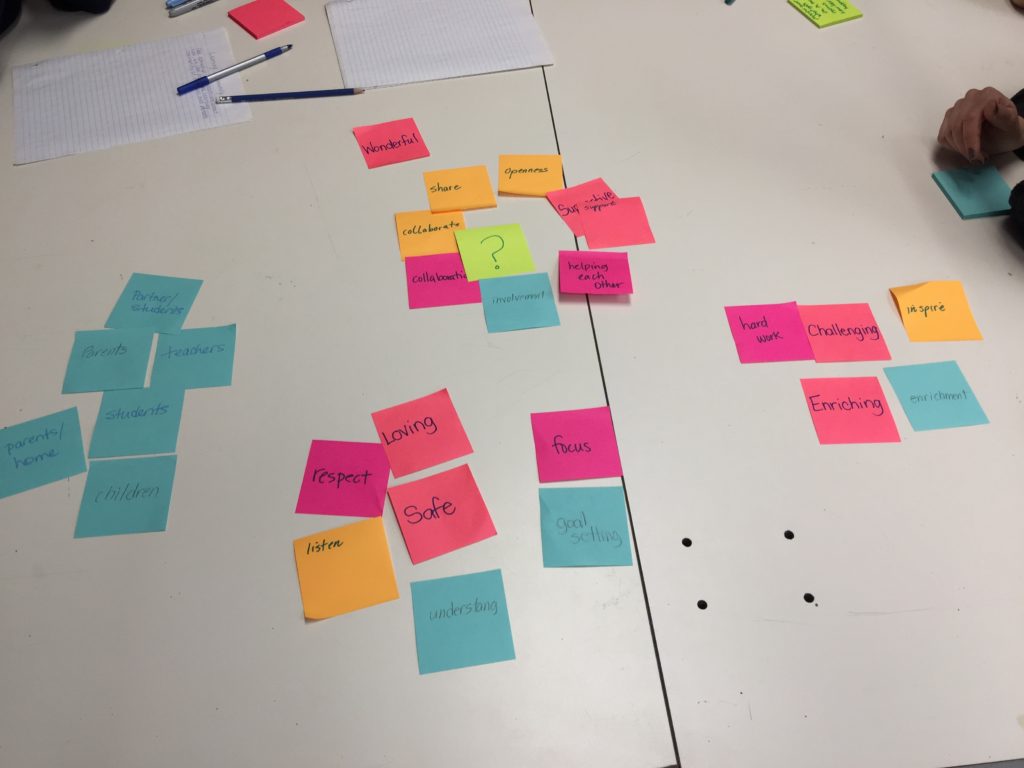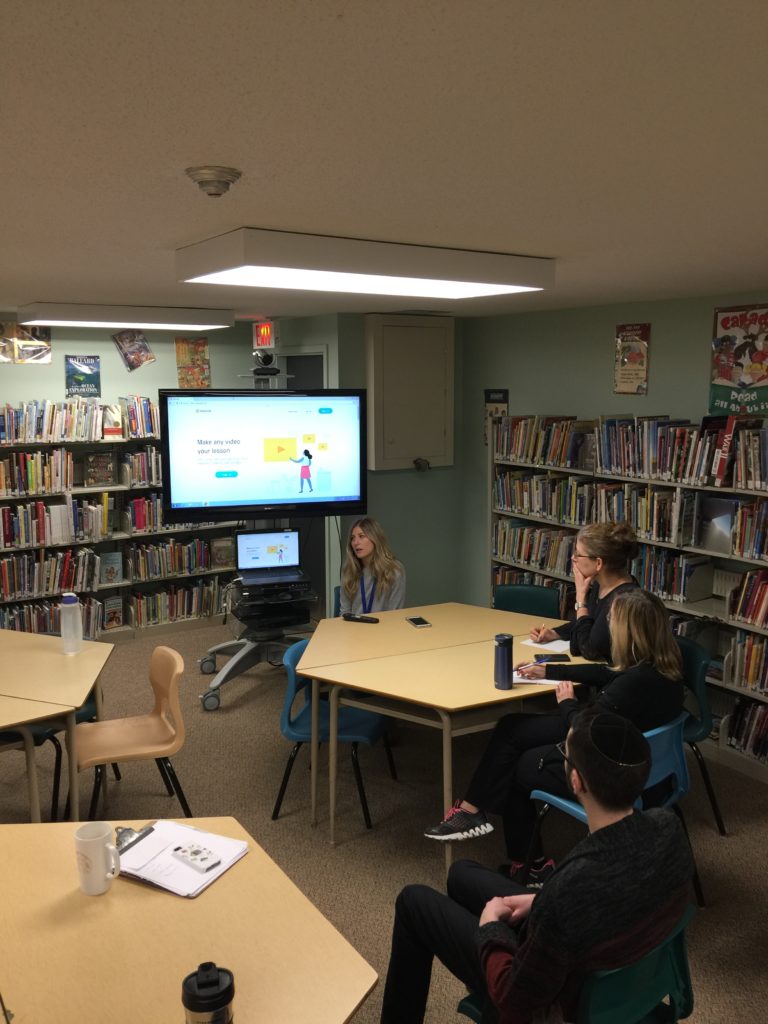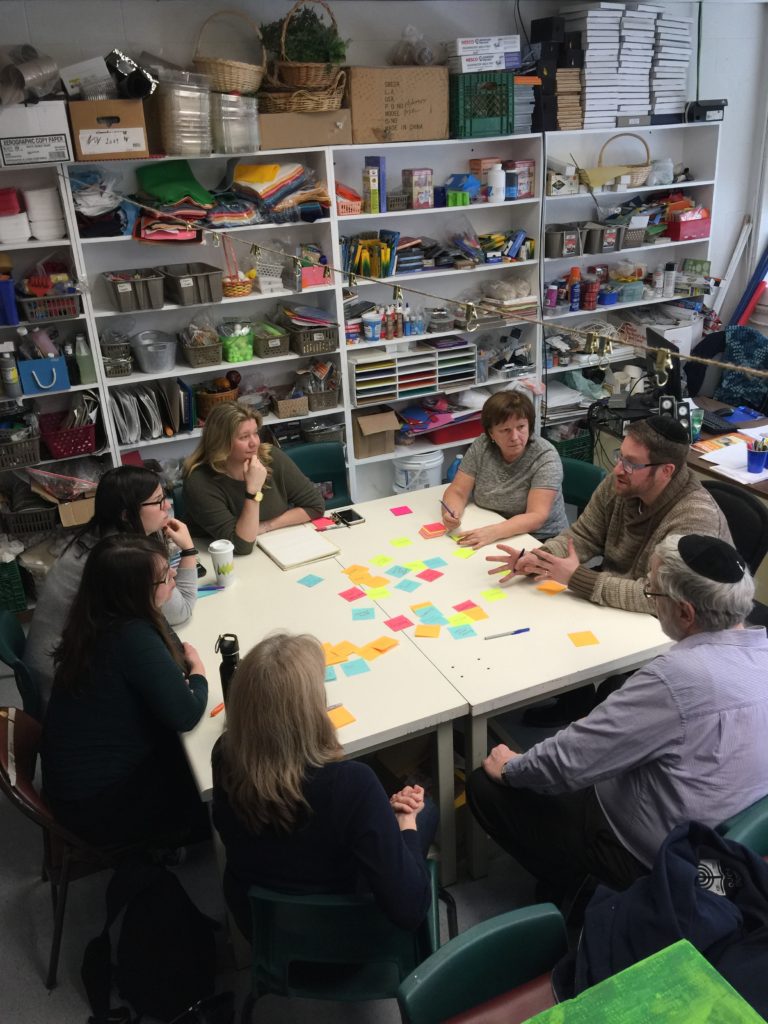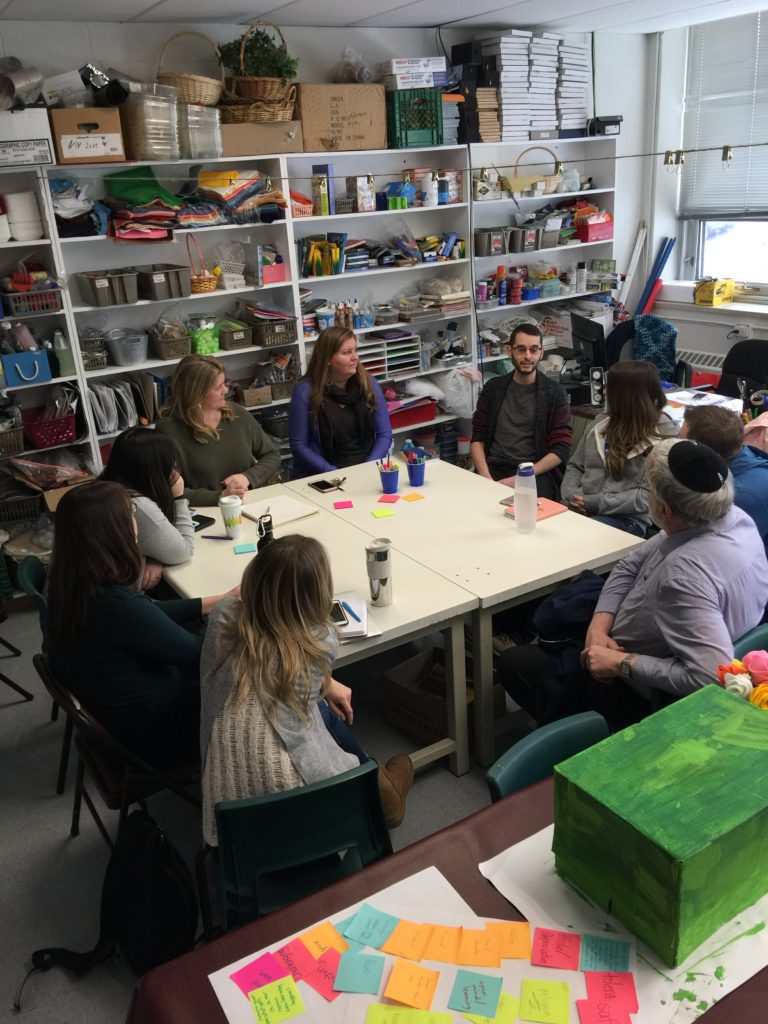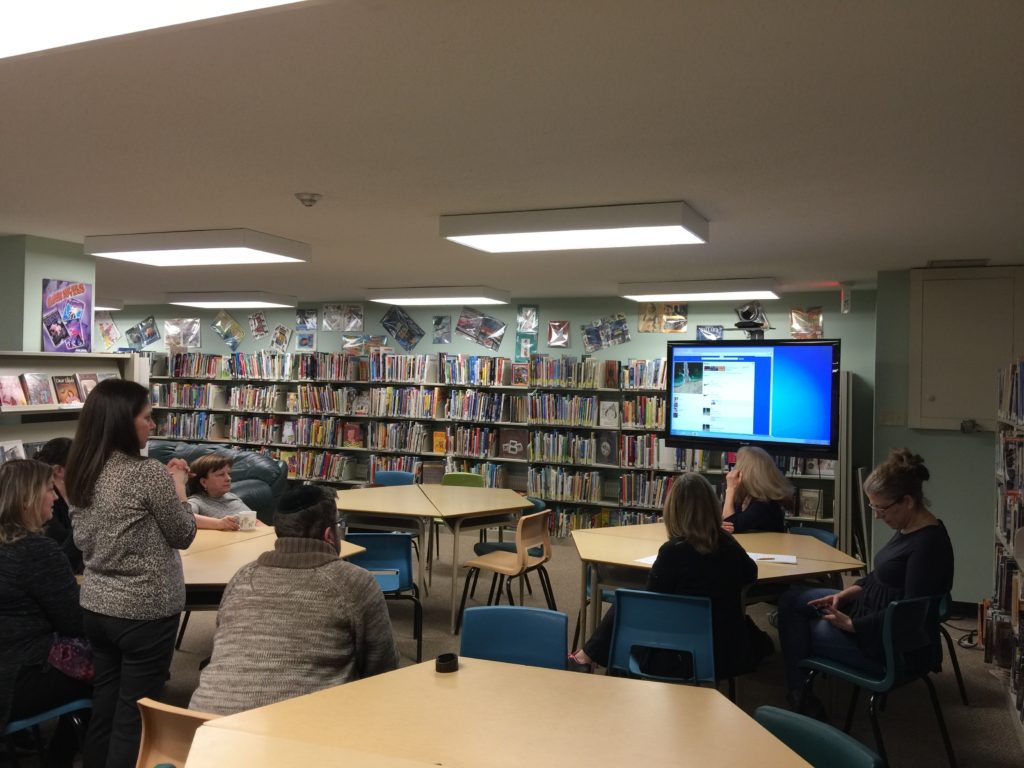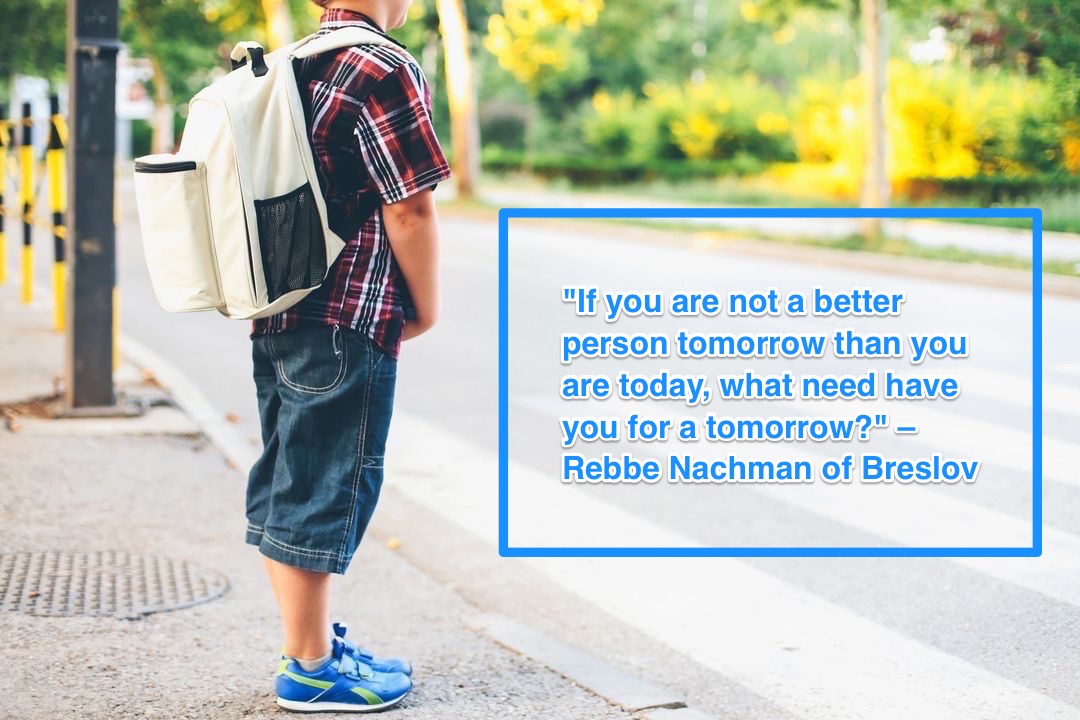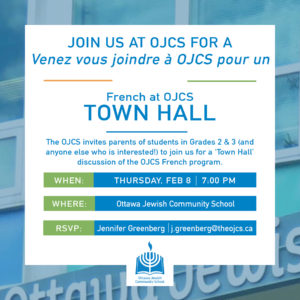Even though I am adjusting to a more traditional “Northeast” calendar, with later beginnings and endings, it is still startling that we are down to the last eight weeks of this remarkable year! There are still so many signature events still to come and so much amazing work to do, and yet here we are…the home stretch has officially begun.
And so, I would like to begin my annual series of “Transparency Files” blog posts which begins with my own evaluation, soon moves to reveal the results of this year’s Parent Survey, continues with a discussion on next year’s new initiatives and concludes with a conversation about next year’s faculty and schedule.

We are in that “evaluation” time of year! As head of school, I have the responsibility for performing the evaluation of staff and faculty each year. Fittingly, they have an opportunity to do the same of me. Our Annual Faculty Survey presents current teachers and staff with the opportunity to provide anonymous feedback of my performance as head of school. Please know that I have already shared the results and analysis with the faculty and have sent the full unedited results to our Board’s Head Support & Evaluation Committee as part of their data collection for my evaluation.
In future years, I will invite you to begin by reviewing last year’s post. This year’s self-evaluation is based on goals created for this year (which was done months ago in consultation with the Head Support & Evaluation Committee). You will not find a complete laundry list of my day-to-day responsibilities. You will find selected [there are more goals in each area than I am highlighting here] components for the 2017-2018 OJCS academic year:
Executive Leadership & Organizational Management
Jon’s 2017-2018 Goals
- Identify appropriate benchmarks and standards across the curriculum.
- Create and disseminate survey instruments to measure OJCS graduates’ transitions and successes (or failures),
- Launch planning process to re-imagine teaching and learning at OJCS / innovation process.
- Develop prototype of a light Makerspace with Jewish content integrated.
- Purchase and experiment with 3D printer.
- Amplify use of Google Classroom.
- Develop collaboratively additional evaluative tools (outside of CAT-4 and curriculum-driven assessments) for measuring academic success and instituting a process for tracking and sharing information over time.
- Revise exams for Grades 7 & 8 to incorporate all of Jewish Studies.
- Ensure all in-house professional growth is embedded, ongoing and meaningful.
- Provide frequent and varied professional development opportunities for all teachers (conferences, workshops, classroom exchanges, etc.).
- Connect Jewish Studies Faculty to Prizmah.
- Each teacher will have a Professional Growth Plan with artifacts, deliverables and accountability.
- Explore the possibility of accreditation through OFIS, CIS and CAIS. (Likely CIS).
- Work with SJCC, Ganon, Federation, etc. to lay the groundwork for OJCS to initiate JK transition beginning in 2018-2019.
I am pleased to say that we have achieved many of the above (and more)! Without going through each one individually, as many of my blog posts this year have been about them, let me share some general thoughts…
…the conversation around “benchmarks and standards” has shifted as we, instead, began with work clarifying our core values. When that work is complete (see the ad below), we can then drill down. We want to begin asking ourselves questions like, “Do these benchmarks bring us closer to what we believe to be true about teaching and learning or not?” Please remember (or know) that we are never talking about discarding or ignoring the Ministry of Ontario standards – we are talking about ensuring that they are simply the beginning of the conversation; that they are the floor and not the ceiling of our expectations.
…we are so grateful to our teachers and parents for their willingness to dive deeper into Google Classroom…we believe that open and frequent communication between school and home is the key to a successful school experience. We also are not sure that Google Classroom is the best platform for what we ultimately wish to do educationally. Stay tuned.
…we made the decision, but may not have adequately explained, to move our standardized testing window to the fall to come into line with when other private schools in our community take them. We will have a conversation next year about which tests we take, which grades, why we take them, how the data will be used, etc.
Advancement
Jon’s 2017-2018 Goals
- Launch annual campaign
- Steward major donors
- Hit the match through MATCH
- Build capacity with the Development Committee through Prizmah coaching
It is the work we do in this area that determines how much we are able to achieve in all the others. There is no private school in North America who subsists solely on tuition revenue. That is why there is no private school in North America who does not have some kind of annual campaign, asking those who can, to do. And in a Jewish day school where we aspire to ensure that finances not be the reason a child is unable to attend, we need to raise that much more. And we do. Our lay leaders worked this year and last with a Prizmah Coach to launch this year’s annual campaign. And I am proud to announce that we raised enough to qualify for matching funds from the AVI CHAI Foundation! Thanks to all who gave what they could this year!
Next year we hope to increase the percentage of families who participate because we want to show all our donors and supporters that no one cares more about the school than its families. Even the smallest contribution matters…we look forward to more conversation on this topic next year.
Public and Community Relations
Jon’s 2017-2018 Goals
- Teach a “Parent University” course to all interested parents/caregivers.
- Develop a “Parent Ambassador” program which can serve as a way of disseminating information, mentoring new parents, guiding tours, etc.
- Blog weekly, Carpool line daily, twice-yearly meetings with all parents, meeting/phone calling as needed and as proactively as possible.
- Be a presence at all our local synagogues/form a Rabbinic Advisory Committee.
I think this has been an area with some big successes and big fails. I am pleased with how the blogging is going and people’s responses to it – especially as it is new for our parent community. I am outside each and every morning as part of carpool and glad to be there. It is the best way to start each day and a critical engagement point. I have worked hard to be a presence at all our community’s synagogues and enjoyed speaking at most of them at some point during the year. It is new (for me) working in this kind of communal context and I have stretched myself religiously in order to be present. It has been worth it in ways big and small. We have also succeeded in creating a Rabbinic Advisory Committee that is playing a vital role in helping us enhance the “J” in “OJCS”.
The biggest fail in this area has been with “Parent University”. Normally it takes a few years to get sick of me, not a few weeks! After launching with a robust number of attendees, it began to dwindle down to a number too small to work meaningfully with. Feedback was much more about timing than content, and figuring out how to engage working parents is a huge issue. Similarly, although some constructive work was done in further developing our PTA, we were not yet ready to launch a formal “Parent Ambassador” program. Finally, although I think we have had an opportunity to meet with many, if not most, families many times throughout the year, I do think we need to at least formally invite each family in a couple of times each year to really be sure we are meeting needs and hearing concerns.
Finance and Operations
Jon’s 2017-2018 Goals
- Revise budgeting process to be more proactive, less reactive.
- Work with Committee to initiate the process earlier.
- Develop a budget for the school we want to be as a strategic first step.
The paradigm shift – which we are actively in now – is budgeting for the school we dream of being, at least as a first draft, instead of the one we currently are. We have actively engaged our full administrative team, relevant staff, and board to dream the high dream. Of course there are fiscal realities we must attend to, but without knowing what we are aiming towards, there can be no plan to get there. As mentioned above, I’m encouraged by resources being marshaled to deliver on the OJCS promise.
Those are just some highlights; you will also get an additionally honest look at my shortcomings when I share back results from the Annual Parent Survey. As always, your feedback – whether publicly commented here, privately shared with me through email or social media, or directly shared through conversation – is greatly appreciated. As I told our teachers, I look forward to getting better at my job and I am thankful for the feedback I receive that allows me to try.

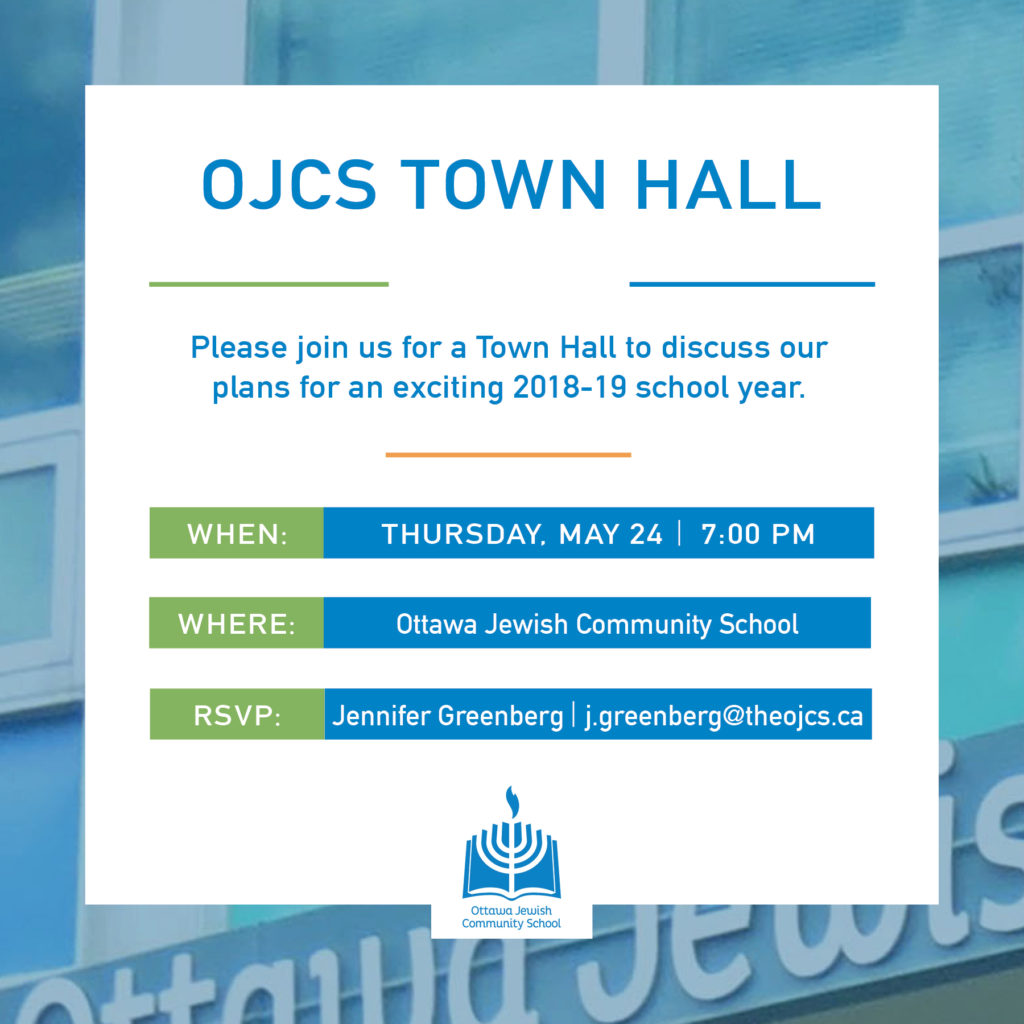




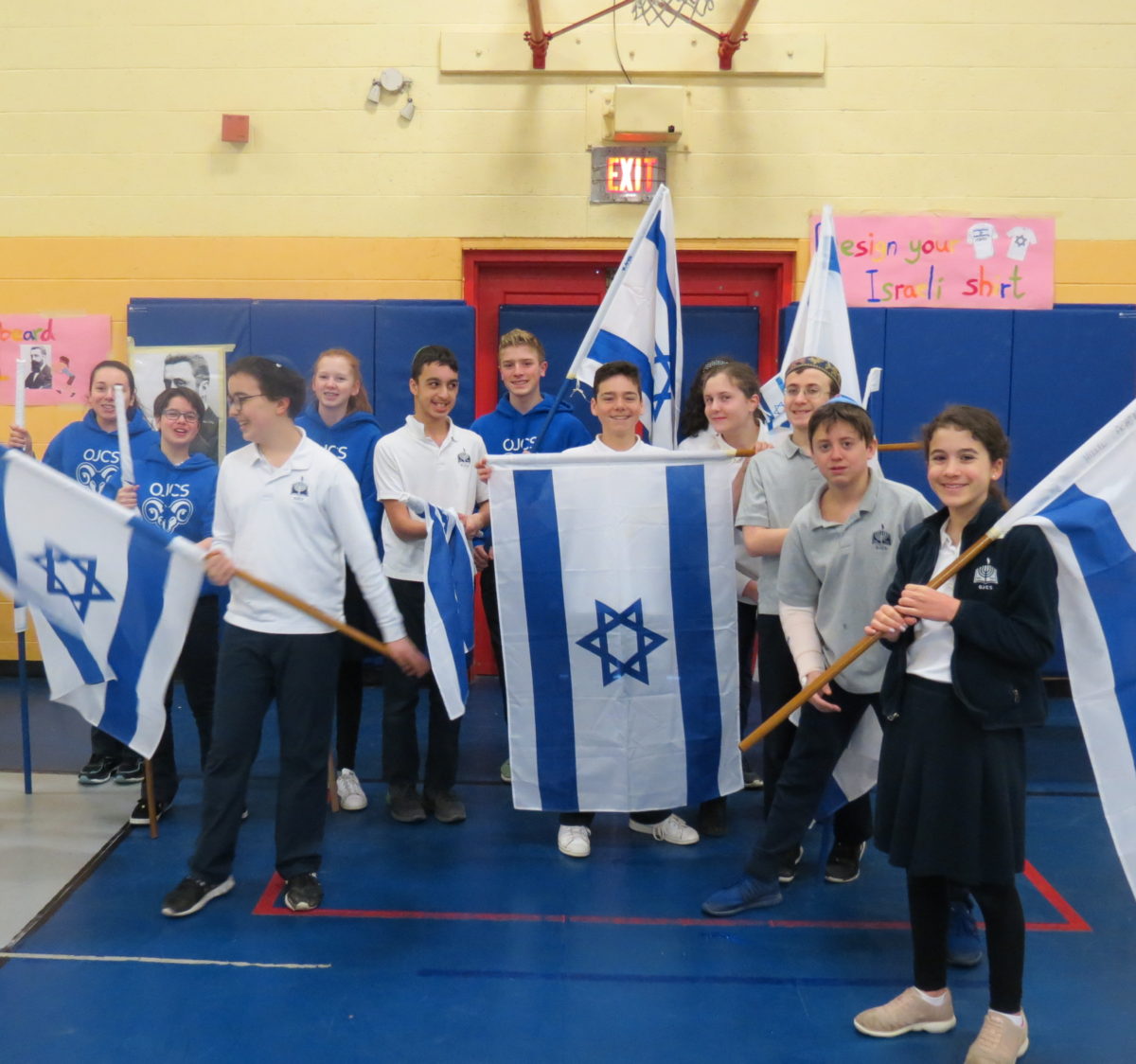
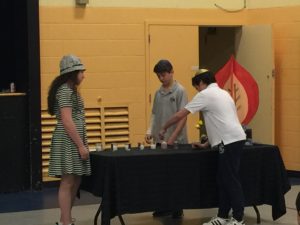 We began with Yom Ha’Shoah, where our Grade 8 students, led by our Shinshinim Idan and Noa, Morah Ruthie and Rabbi Rotenberg, prepared a powerful assembly for our older students which incorporated presentation, liturgy, music and a candle-lighting. I was so impressed by how seriously our Grade 8 students took their responsibility and by how seriously our students took the assembly. It was an appropriate tribute to such a solemn day on our calendar.
We began with Yom Ha’Shoah, where our Grade 8 students, led by our Shinshinim Idan and Noa, Morah Ruthie and Rabbi Rotenberg, prepared a powerful assembly for our older students which incorporated presentation, liturgy, music and a candle-lighting. I was so impressed by how seriously our Grade 8 students took their responsibility and by how seriously our students took the assembly. It was an appropriate tribute to such a solemn day on our calendar. It was Grade 7’s turn this week – with huge help from Morah Ruthie, Noa and Idan – to lead our school in an incredible Yom Ha’Zikaron assembly. Hereto, they incorporated presentation, liturgy, music, dance, and a candle-lighting. It was extra special to have had a chance to hear from our slightly ad-hoc “choir” who had a chance to perform both at the community’s commemoration as well as our own. We were also blessed to hear from a special guest, Col. Amos Nachmani,
It was Grade 7’s turn this week – with huge help from Morah Ruthie, Noa and Idan – to lead our school in an incredible Yom Ha’Zikaron assembly. Hereto, they incorporated presentation, liturgy, music, dance, and a candle-lighting. It was extra special to have had a chance to hear from our slightly ad-hoc “choir” who had a chance to perform both at the community’s commemoration as well as our own. We were also blessed to hear from a special guest, Col. Amos Nachmani,  the Israeli Defence Attaché to Canada, who shared some remarkably personal words to help our students better understand and connect to this important holiday. This is one of the true blessings of being a Jewish day school in our nation’s capital.
the Israeli Defence Attaché to Canada, who shared some remarkably personal words to help our students better understand and connect to this important holiday. This is one of the true blessings of being a Jewish day school in our nation’s capital.
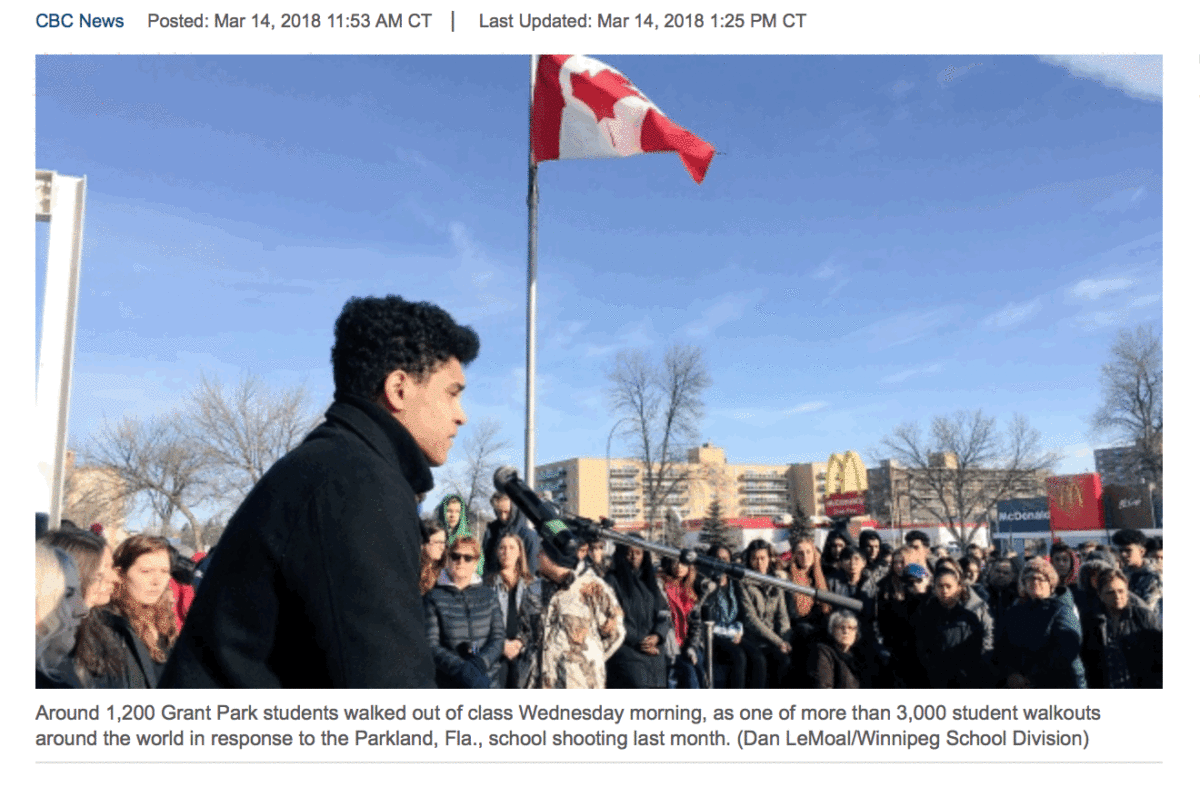

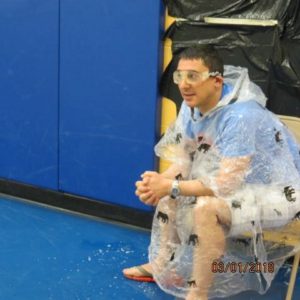 We came steaming out of February Break with Grades 7 & 8 Basketball Tournaments, Spirit Week, Purim (that’s me getting soaked by students during our Purim Carnival), our second site visit from
We came steaming out of February Break with Grades 7 & 8 Basketball Tournaments, Spirit Week, Purim (that’s me getting soaked by students during our Purim Carnival), our second site visit from 